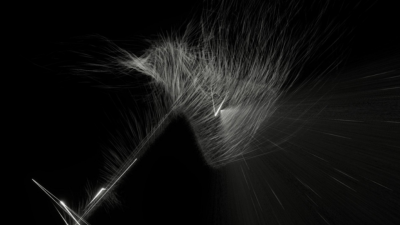
Moving toward resilient cities
‘The Resilient City’ – one of ten works featured in ‘SAFE: A collection of works exploring a safer world’ – is an animation that visualises Mexico's water infrastructure.
This page is approximately a 2 minute read
This page was published on

A digital twin is a computer model that simulates an object or process in the physical world. This technology has huge ramifications for engineering, as it allows for real-time correspondence between a physical engineering system and its digital equivalent. As such, implementing a digital twin means virtual testing can be done during and after physical alterations are made, lending increased efficiency and economy in testing and decision-making.
The use of digital twins is expected to increase drastically over the next decade, improving the safety of our engineered environments and optimising processes in sectors like health, energy, logistics, economics and more.
‘Illuminating Data’ – one of ten works featured in ‘SAFE: A collection of works exploring a safer world’ – is inspired by research from The Lloyd’s Register Foundation Data-Centric Engineering programme at The Alan Turing Institute.
Since its inception in 2015, The Alan Turing Institute has established the largest concentration of digital twin research in the UK, in areas from aerospace and civil engineering to urban modelling and agricultural monitoring. The Turing is developing twins that are informed by the latest thinking in artificial intelligence (AI), with the aim of addressing grand societal challenges and generating tangible, real-world benefits.
This is encapsulated by Project Odysseus, led by the Data-Centric Engineering programme. During the pandemic, the project brought together multiple large scale datasets capturing mobility, transportation, and traffic activity to create a digital twin of the city of London. The findings from this project were then used to inform targeted interventions and effective Covid-19 policy making.
‘Illuminating Data’ takes this concept and translates it into an everyday setting – the angle poise lamp. The live simulation feeds real time data from the lamp on to a screen, asking the user – what are the potential uses of digital twins in everyday life, and in what kind of futures will these systems operate?
‘SAFE: A collection of works exploring a safer world’ was an exhibition celebrating the 10 year anniversary of Lloyd’s Register Foundation that took place at Somerset House in 2022.
To explore ‘SAFE: A collection of works exploring a safer world’, visit our online exhibition.
To learn more about the Data-Centric Engineering programme and how they’re making the world a safer, more sustainable place, visit their website.